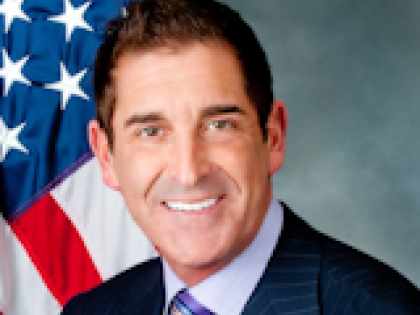
Senate Democrats Plan Would Extend Health Care To State’s Uninsured Children
Jeffrey D. Klein
June 5, 2006
Senator Savino said the most serious implication of having so many uninsured children is that “treatable and preventable illnesses will often go undiagnosed in low-income, uninsured families.” She said when a condition such as iron deficiency anemia, asthma, and attention deficit–hyperactivity disorder are left untreated in children, “it can have lifelong adverse affects on their health, their education and their opportunities.”
Savino said the Democratic proposal would make public health programs “easier to enter and easier to stay in.” She said the State still uses “unnecessary, bureaucratic barriers that are not federally mandated.” Eliminating those barriers, and using new health information technology to streamline the application and recertification processes would “improve productivity between levels of government and private insurers, and allow applicants to be enrolled immediately, rather than weeks later.”
The Senate Democrats' plan adds a new, subsidized premium tier to Child Health Plus.
Senator Sampson, the Democratic ranker on the Senate Health Committee, cited the Federal Centers for Medicare and Medicaid Services 2000 Medical Expenditure Panel Survey, which shows that the uninsured pay twice as much on average for prescription drugs as those with insurance. More than 5.5 million New Yorkers under the age of 65 lack prescription drug coverage, and only Alaska and New Jersey have higher drug prices than New York State.
The gap between what the uninsured pay for prescriptions and the Federal supply schedule is even more stark: a recent study by the New York Public Interest Group (NYPIRG) found that uninsured New Yorkers pay as much as the 68% more for prescription drugs than the Federal government.
“Insurance companies and Government agencies can negotiate lower drug prices for the people they serve,” Sampson said. “But the uninsured have no buying power and they have no one to negotiate on their behalf. The result is higher prices for the uninsured which end up getting paid by everyone.”
Sampson said the Democratic plan will use volume purchasing power to secure manufacturer rebates and pharmacy discounts to reduce prescription drug costs for New Yorkers without coverage.
“The concept is similar to one used successfully in the state of Maine,” Sampson said. “We anticipate savings for New York consumers will average about 30 percent off retail prices.” Approximately 1.6 million adults would benefit from the discount prescription drug plan.
“More access to prescription drug information for more New Yorkers means lower health care costs for all New Yorkers,” Klein said.
-30-
the Senate Democratic Proposal
Donna A. Lawrence
Judy Wessler
Empire Justice Center
"SCAA always welcomes new ideas for helping New York's children and families get the services they need to grow strong and healthy. This package of proposals provides additional new ideas for expanding and improving health insurance coverage."
President and CEO
Elizabeth Swain
Chief Executive Officer
Community Health Care Association of New York State
Harris K. Lampert, MD
NYS Coalition of Prepaid Health Service Plans
Fatima Goldman
Federation of Protestant Welfare Agnecies
Share this Article or Press Release
Newsroom
Go to Newsroom
